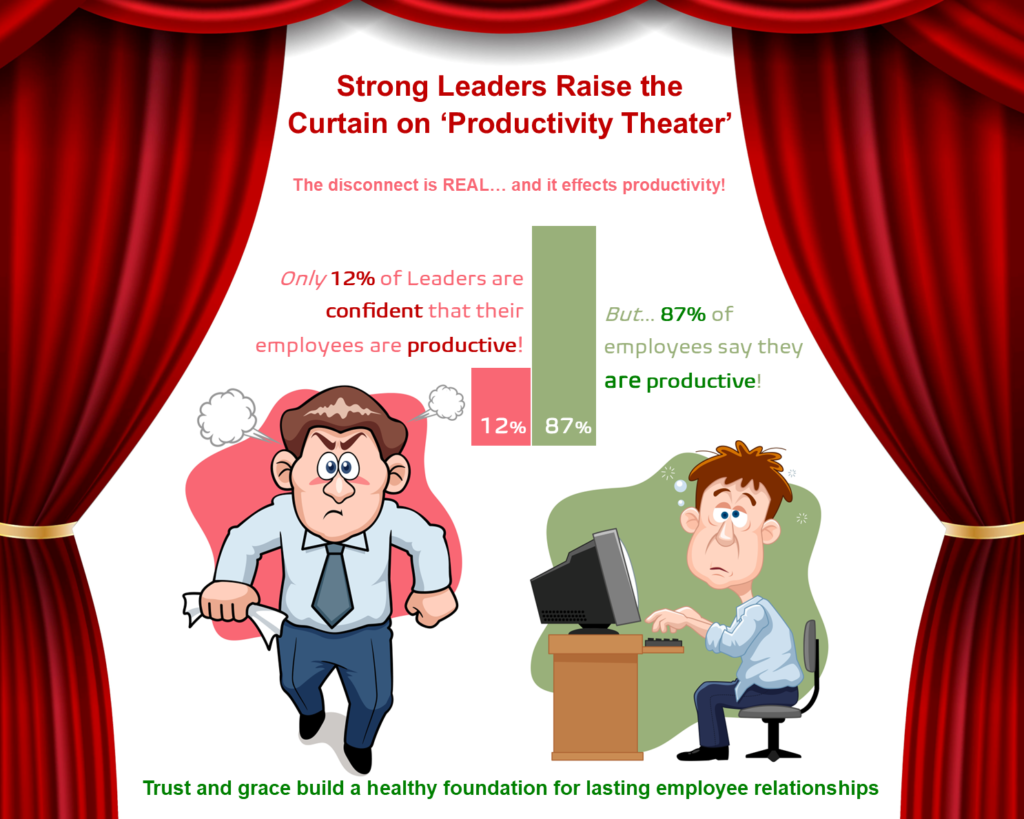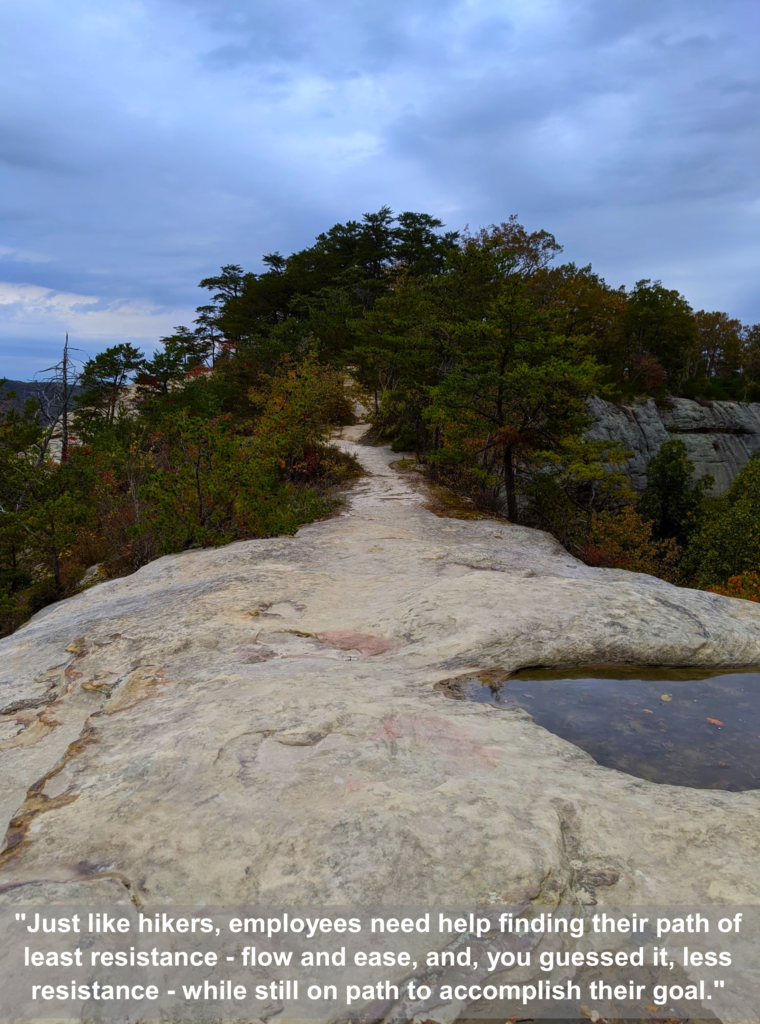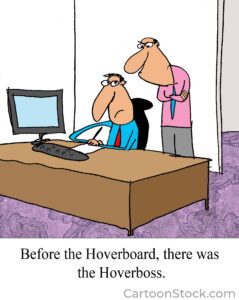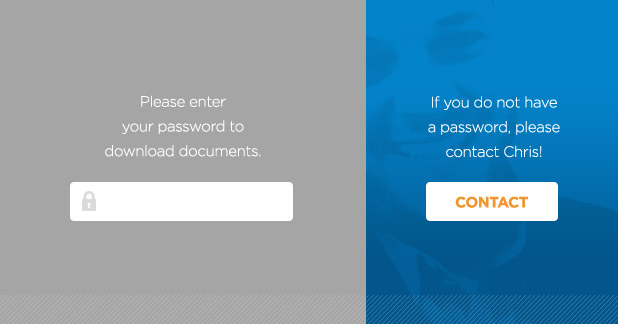 “Productivity paranoia” is a recent buzz phrase from Microsoft which describes the notion that “leaders fear that lost productivity is due to employees not working, even though hours worked, number of meetings, and other activity metrics have increased.”
“Productivity paranoia” is a recent buzz phrase from Microsoft which describes the notion that “leaders fear that lost productivity is due to employees not working, even though hours worked, number of meetings, and other activity metrics have increased.”
In other words, leaders are paranoid that their employees are not working enough even though most staff feel that they are doing more than the minimum.
Another buzz phrase, “productivity theater” is when workers feel that they have to “put on a show” to prove that they are putting in the time at work. A girlfriend of mine recently admitted to me that she moves her computer mouse regularly and makes sure her icons on Slack are green, even though she is reading documents for work! She feels intense pressure to always be ON.
This disconnect hurts the foundation of any relationship between leader and employee: trust.

The Challenge:
As human beings, we cannot always be ON – even at work. It is natural to have some days where your productivity is far from stellar. Maybe your creativity is not where it should be. Maybe you are distracted with your kid’s science project. Maybe your sick parent just went into a nursing home. Life happens and awesome leaders know this and don’t expect their employees to be “productivity perfectionists” 24/7.
In fact, science has shown that spending time outside increases productivity. One study reports that spending just 29-minutes outside increases productivity by 45%. Also, 63% of office workers feel an improvement in their mood after spending time outdoors (Harvard, 2015).
Many factors might cause a slow day at work, whether you recently finished a big project or it’s a slow season in your industry or it’s the day after the Super Bowl – which is expected to be one of the least productive work days of the year!
In fact, 4.4 million employees admit they’re planning to come in late to work and 1.5 million call in sick the day after the big game even though they aren’t actually sick (Workforce Institute, 2008).
Instead of trying to fight this fact, be the leader who plans for it.
Psychological Principle:
 In psychology, there is a principle called “the path of least resistance.” Basically, it’s a way of living that contains more flow and ease, and, ultimately, less resistance. This means less struggle, less feelings of fear and hesitation, ultimately leading to a more enjoyable and less stressful experience – both at work and in life.
In psychology, there is a principle called “the path of least resistance.” Basically, it’s a way of living that contains more flow and ease, and, ultimately, less resistance. This means less struggle, less feelings of fear and hesitation, ultimately leading to a more enjoyable and less stressful experience – both at work and in life.
Being a “helicopter boss” (or ‘Hoverboss’!) is counter-productive to helping people be their best self because it causes resistance. Leaders must shift their mindset from worrying that they are not working hard enough to helping them work smart – focusing on the work that is most  important and provides the biggest value to themselves, the team and the company. Ultimately, helping employees find that path of least resistance is a task for any successful leader.
important and provides the biggest value to themselves, the team and the company. Ultimately, helping employees find that path of least resistance is a task for any successful leader.
Read on to discover the benefits of a slow day at work – like the day after the Super Bowl – and find a list of useful things that you can promote within your team:
Mindset Shift:
- If you can’t fight it, join it – Use the Super Bowl as a fun way to promote team building. If allowed, consider doing a Super Bowl pool with your team and/or between departments. This activity can instill some friendly competition, collaboration and team building. Create awards for winners to make the whole event a little more personalized. If gambling is frowned upon in your workplace, you could still do a pool like this just for fun and for bragging rights!
- Slow days are healthy and good for the bottom line – Slower work days can be beneficial because they can help you keep your work volume at a more sustainable level and allow you to complete tasks you might not otherwise be able to finish on a regular day. Increased productivity in the long run, reduction of burnout, and enhanced creativity are all benefits of allowing some slowness in the workday.
- Feedback Monday – A slow work day is a great opportunity to provide and ask for feedback from your team members. Unless their favorite team lost the Super Bowl the day before – in that case, this is not a good time for feedback!
- Plan ahead – Think ahead to the coming weeks and months and put time on your calendar for things you want to be a priority. Tasks such as: scheduling meetings, developing timelines for future projects, assigning tasks, scheduling vacations, doing performance reviews, etc.
 Tear down the silos – It is really easy to get stuck focusing on just your department. On a down day, allow yourself to reach out to another department lead. Maybe invite them for coffee, etc. Make an effort to get to know them and the work that they do and see if you can provide any assistance.
Tear down the silos – It is really easy to get stuck focusing on just your department. On a down day, allow yourself to reach out to another department lead. Maybe invite them for coffee, etc. Make an effort to get to know them and the work that they do and see if you can provide any assistance.
Performance Shift:
- Promote a “Professional Development Day” – Slow days at work can be a welcome opportunity to work on your own professional development. Skill development, relationship building, and goal setting are several of the ways to spend your time productively on a slow day – and encourage your team to do the same! Read a few chapters of a development book, listen to a podcast, etc.
- Use a football analogy in a meeting – Football, like other sports, is a team sport that requires support from everyone to achieve the goal – winning! During a meeting, apply certain sports principles to how you make decisions. Offensive plays are the day-to-day tactical actions that we complete, but defense is a planning and proactive approach. This could be a fun way to switch up routine and boring meetings.
- Throw a virtual/in-person post Super Bowl office party – Send your team members fun Starbucks coffee gift cards and/or drinks. They will probably need the caffeine after staying up late the night before! Studies show that office parties can boost morale.
- Clean and organize your office space – Clutter in your space leads to a cluttered mind and cluttered habits. Use a down day to restart and organize papers, file cabinets, your email, etc.
- Have a Strategic Plan check-in day – Spend some time on a down day and look at the Strategic Plan you set up for yourself and your team. Check in on where you are, what’s behind and put a plan in place accordingly.
Strong leaders are not “helicopter leaders.” They know that some days are not going to be as productive as others and they know that productivity comes in all shapes and sizes. Be prepared for the Super Bowl Monday hangover!
If you want to learn more about team productivity, reach out to our team!
Follow us on Social Media!















0 Comments